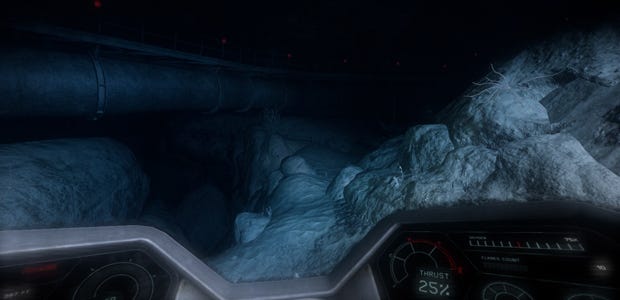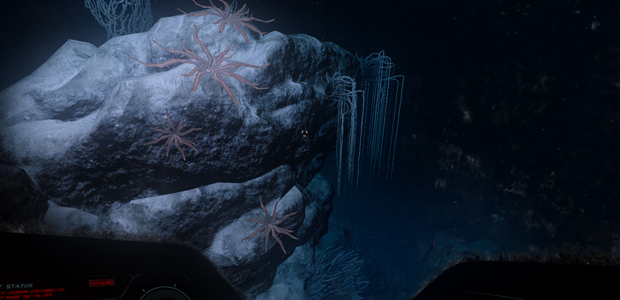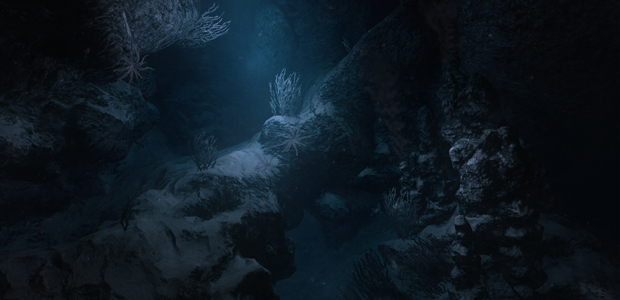In The Deep End: Narcosis Hands-On
Upping The Underwater Pressure
Although not specifically an Oculus Rift game, it's hard to imagine playing Narcosis without the headset. The game is an underwater survival story which demands the player manage his or her oxygen supply as they navigate the ocean depths when an incident leaves them stranded.
"The perception is that it's a horror game and that's cool," says David Chen, part of the development studio Honor Code. "But we're definitely hoping for some moments of beauty."
The atmosphere is one of claustrophobic tension as I try to follow an oil pipeline armed only with a flare gun and, I think, a diver's knife. Vast underwater stalagmites suddenly rear up as they're caught in the glare of your suit's light, as do strange and hostile creatures which must be crept past.
"You're an operator on a deep sea energy lab; basically an oil rig worker at the bottom of the ocean," says Chen. "There's some sort of catastrophe but we don't try to make it some conspiracy. All that matters is this person's journey - physically and emotionally - to the surface. What measures does he have to resort to to survive?"
The deep ocean is an alien landscape, its colours bleached and the darkness intense. The basic business of survival depletes your oxygen supply, while panic significantly hastens the process. Managing your oxygen consumption is key.
While exploring my character I nearly run out of oxygen and the display becomes fuzzy and indistinct. There's a crate nearby from which I can salvage some more, although the return of clear vision doesn't stop me from immediately losing my bearings and falling into some kind of an abyss. Surviving further into the game, your character can also experience the titular narcosis - altered perception, hallucinations and so on – as a result of breathing under elevated pressure.
In real life the pressure would be intense and any malfunction of your diving suit a matter of extreme urgency. In Narcosis that latter source of stress has, at least, been removed, but that fact becomes slightly less comforting when David Chen tells me they refer to the suit as a "walking coffin".
Oculus Rift's contribution to the experience lies in the sense of immersion it can generate. It's a word so often used to describe all manner of videogames and Rift's effect but I'm using it here deliberately. Firstly, because given the underwater setting it's pleasingly apt. Secondly, because wearing the Rift in concert with over-ear headphones generates a very similar experience to that of actual scuba diving.
When underwater for real your diving mask limits your field of view and forces you to turn your head the way using a Rift headset does. The headphones then muted the noise of the Game Connection conference hall (where I was having this hands-on) turning it into an indistinct pulsing ocean-esque hiss.
One of the less pleasing side effects was it left me with the same headache-y nausea that I've also had after diving. I'm not entirely sure whether that's a sign of some top-notch immersion or whether my body simply still hasn't got to grips with the Rift. It's a fascinating project so far, though and the tension it generates is impressive.
Honor Code have been working on Narcosis for over a year now but have only just taken the game on as a full-time project. The developers will be fleshing out their plans for the game over the coming weeks but the aim is currently to release it on Steam sometime in autumn of 2015.










